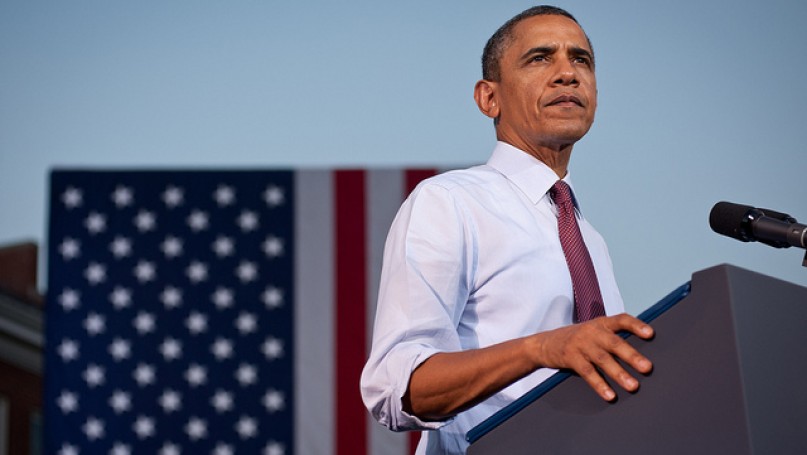
President Obama’s “strategy” for dealing with ISIL is criticized as ineffective, vague, late, contradictory, confusing, and weak. All true. And nevertheless, it seems to me to be the right strategy for a 15-sided war in which our enemies are our allies and our allies are allies of other enemies. Whom does the United States want to prevail in Iraq, in Syria, and in the rest of the region? Ah, it is moderates, the pluralists, the tolerant ones who deserve American support. But do they exist in the region and what fighting force represents them?
As Obama has said many times, he wants to end America’s war on terrorism. He thwarted the American military’s effort to stay in Iraq after its combat role ended there and dodged his own red lines to avoid involvement in the Syrian civil war. But as Trotsky said: you may not be interested in war, but war is interested in you. The chaos that is occurring in Iraq and Syria spilled over into American domestic politics, providing electoral energy for Republicans who had seemingly lost their mastery of security in the Iraq/Afghanistan wars and with the killing of Osama bin Laden. Unless Obama did something to react to ISIL’s beheading of American journalists and its march through Iraq, Democrats would likely suffer huge losses in the upcoming congressional elections and find their 2016 presidential chances diminished.
The something is very little. There will be more bombing. There will be some drone strikes. Iraqi, Kurdish and “moderate” Syrian forces will be given arms and training. The American military will be joined in these efforts by token forces from a few of our regional and NATO allies. There won’t be many boots on the ground and we won’t be told to whom all the boots belong. ISIL won’t be hard to stop and “degrade.” It will be hard to destroy, but that is not promised for at least three years, one year beyond the next presidential election.
The ISIL war is too complex to fight more intensively. The preferred strategy had been to stay out of the Syria civil war which was evolving into an al Qaeda vs. Iran by proxy fight before it became a wider and more confusing conflict, spilling over into Iraq, initiating a split between al Qaeda and ISIL, and drawing in the Kurds. The Qataris are supposedly financing ISIL while the Russians are supporting the Syrian regime. The United States doesn’t want ISIL or the Syrian regime to win. A year ago we were preparing to bomb the latter and now we are bombing the former. We like the Kurds, but don’t want them to break apart from Iraq by declaring their independence. We don’t like Iran, but need their help in Iraq. And then there is the Sunni/Shia split which Americans are told goes way back. Some wars should be reserved for specialists and locals. This is certainly one that should.
Further Reading on E-International Relations
- A Looming Peace for Afghanistan’s Long Hard War?
- International Relations Theory and the ‘Islamic State’
- The PNAC (1997–2006) and the Post-Cold War ‘Neoconservative Moment’
- Cold War Theories, War on Terror Practices
- Opinion – Emerging Elements of a New US-China Cold War
- United States Foreign Policy in the Middle East after the Cold War